From struggle to sustainability
Written by By Proscovia Nakibuuka Mbonye and Widad Osman Suliman
Agig, one of the remotest localities within Red Sea state, suffers from recurrent droughts that affect water availability and the overall health and resilience of communities. The few available water pumps installed years ago, often ran dry during periods of low water levels, exacerbating the water stress in the region.
Several villages in the locality grappled with water scarcity, with communities resorting to collecting water from unsafe sources, some of which are also used by animals. Such practices significantly increase the risk of waterborne diseases, as sharing water sources with livestock could contaminate drinking water.
Gelhanty village, home to 7-year-old Madina, relied solely on a creek as its water source.
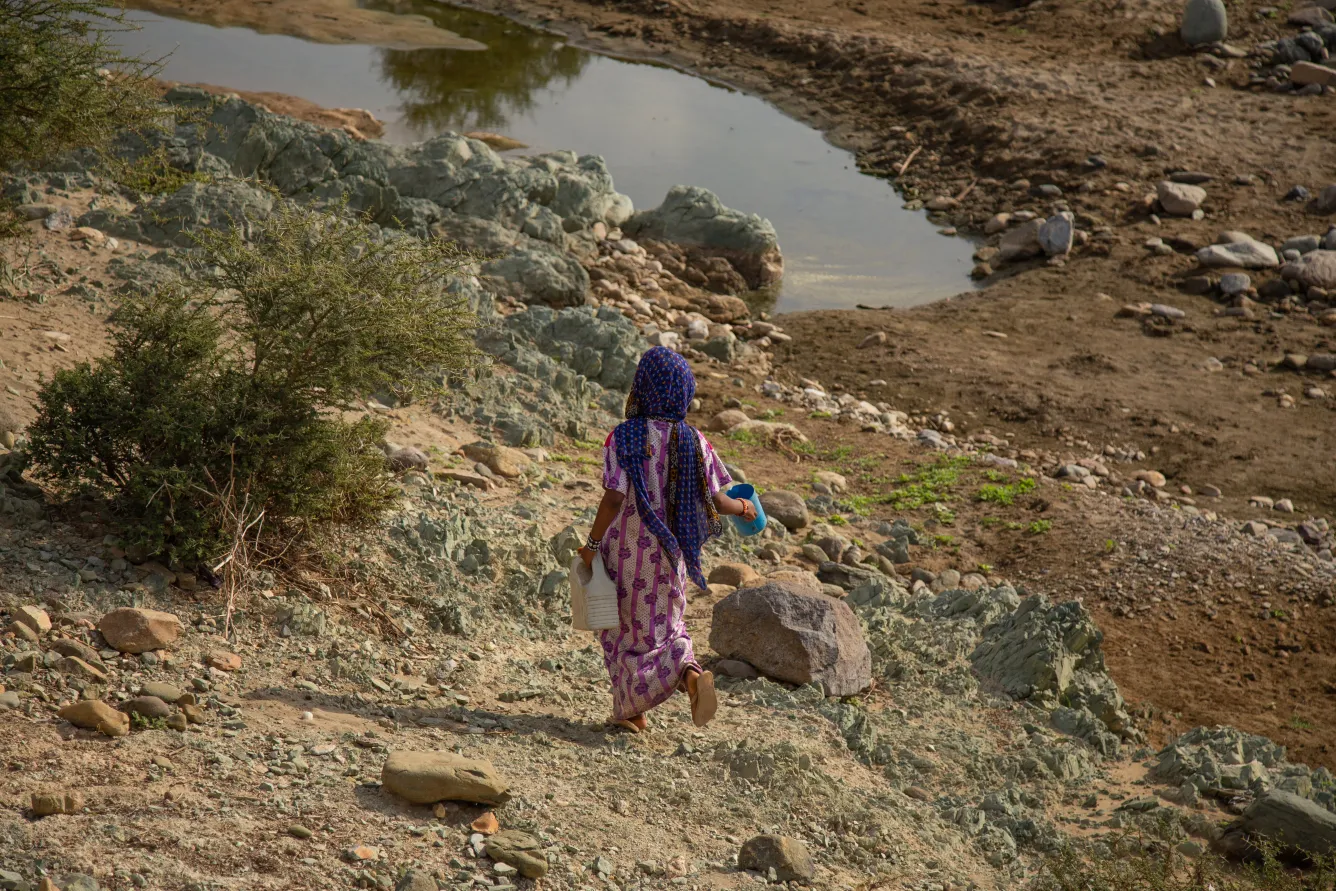
Madina vividly recalls the challenges she faced while collecting water from the stream. “Before, we used to bring the water from a stream,” Madina said while pointing in the direction of the creek. “The water wasn’t good”. She and her peers made three trips every single day, covering one and a half kilometers per trip, carrying a water container and a jug. Despite the arduous task, Madina had to navigate the risks of drawing water from a contaminated source shared with animals. The creek not only provided dirty water but also posed dangers, exposing Madina and her peers to gender-based violence protection risks, including sexual violence during the daily trips.
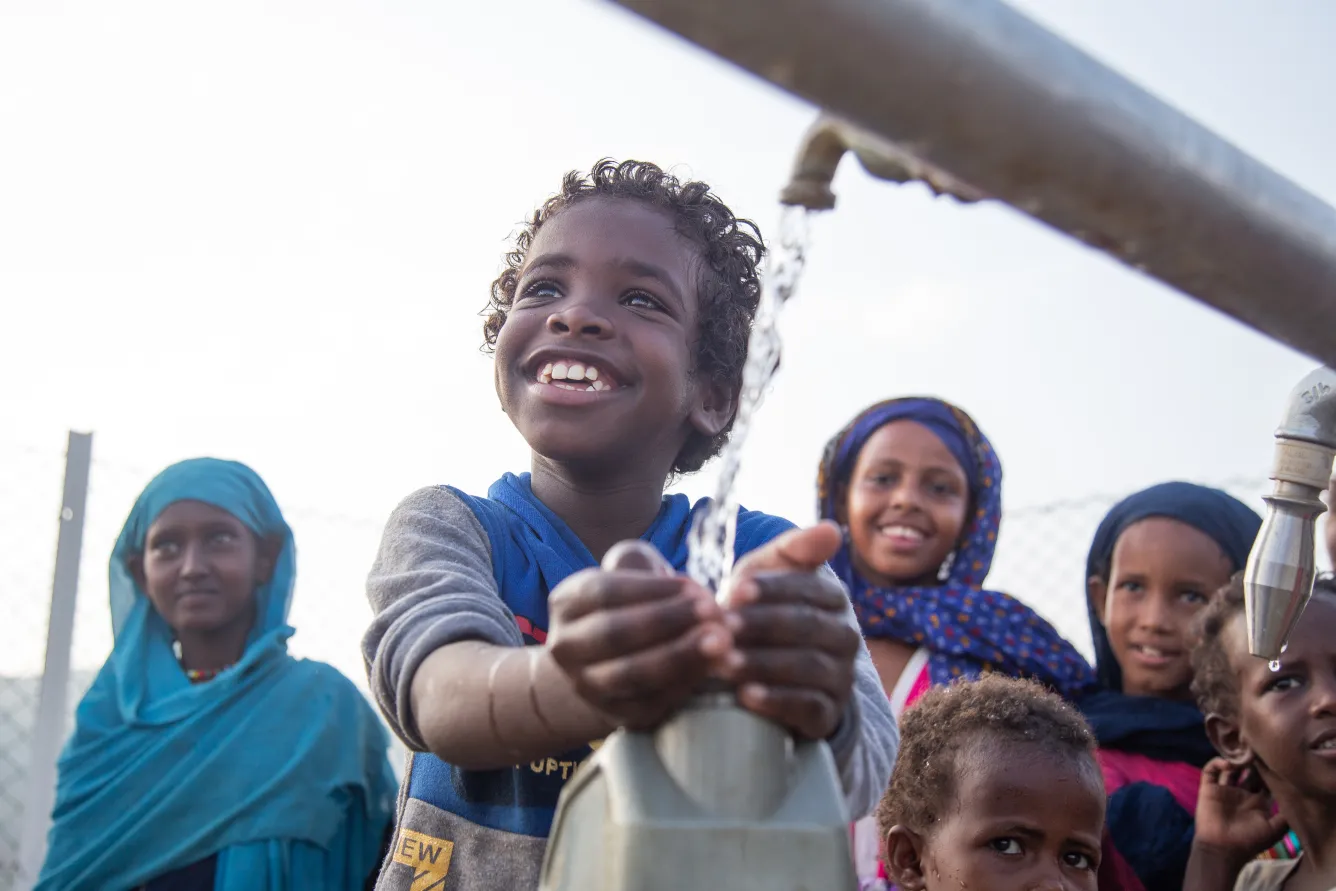
Other children from Gelhanty, like 10-year-old Hamid also recalls how unsafe the water was – “Dogs used to drink from it, and it was dirty. All the animals drank from it”.
While 8-year-old Arafat chimes in – “We would carry heavy water containers (16 litres) across long distances on our shoulders.”
The children’s experiences speak to the burden of collecting water in water stressed areas like Agig; as well as the risks associated with unsafe water. Fetching water was both laborious and dangerous – a venture that also curtailed their chances of attending school.
Clean water – a joy to children and the community
However, in October 2023, Gelhanty village experienced a transformative change. Through the support from the Government of the United States of America, UNICEF, in collaboration with its partner LM International, constructed a solar-powered mini water yard. This project brought clean and safe water to Gelhanty and neighbouring Tegat and Amma villages.
The children and women of Gelhanty now have access to a reliable water source, eliminating the need to collect water from unsafe streams. The solar-powered water station has become a source of joy for the community, evident in the smiles of the children as they fill their containers. Women, previously burdened with carrying heavy water containers, now arrive with donkeys to collect large quantities of clean water efficiently.
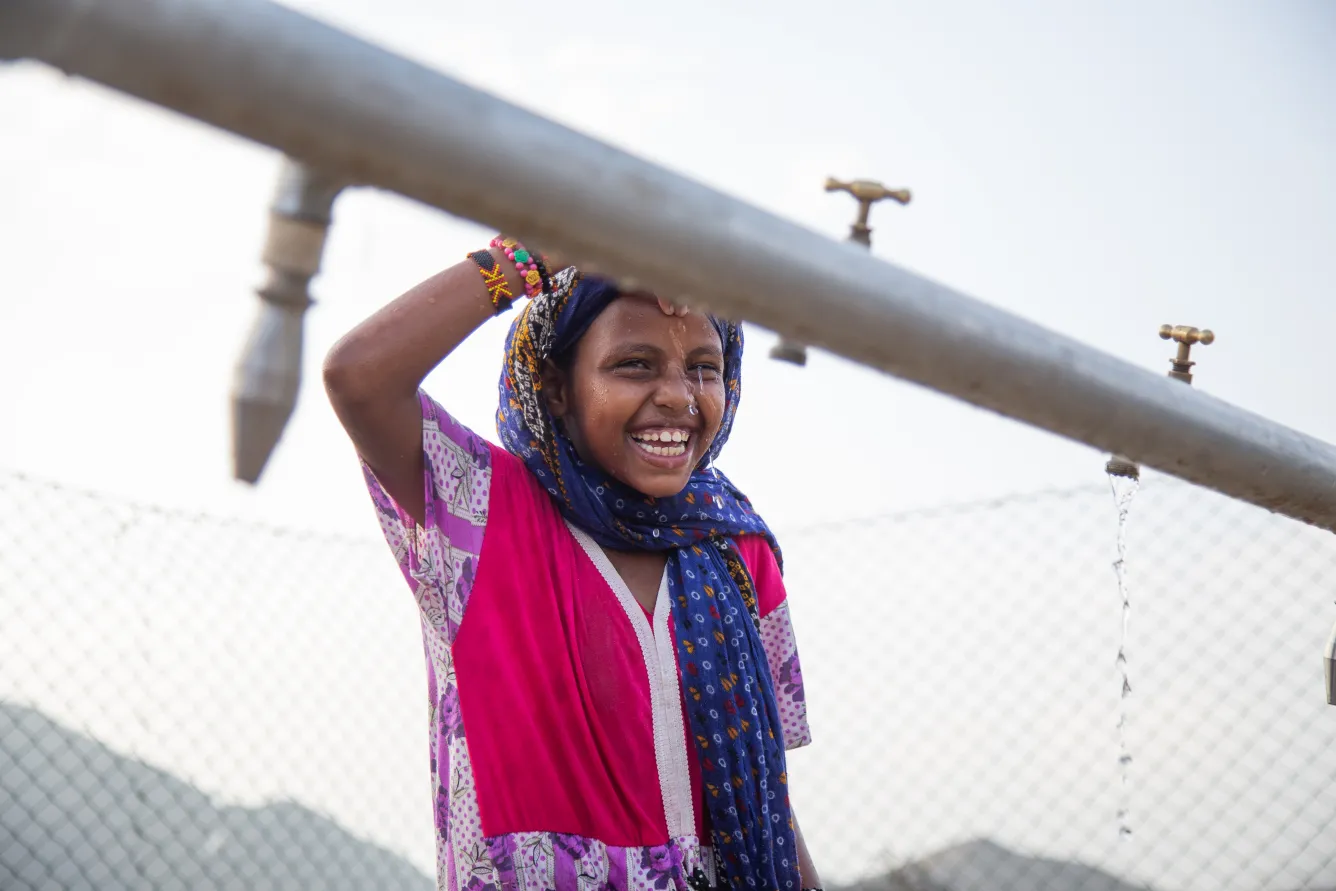
Madina and her friends, enjoying the newfound convenience, take a short break to drink some water and wash sweat off their faces using the water.
“And after this water station, we are done suffering from fetching water,” Madina shares with a smile.
A 10-year-old Arafat is just happy to have sufficient water in her home for domestic use. “We drink it, wash utensils and clothes with it,” she exclaims.
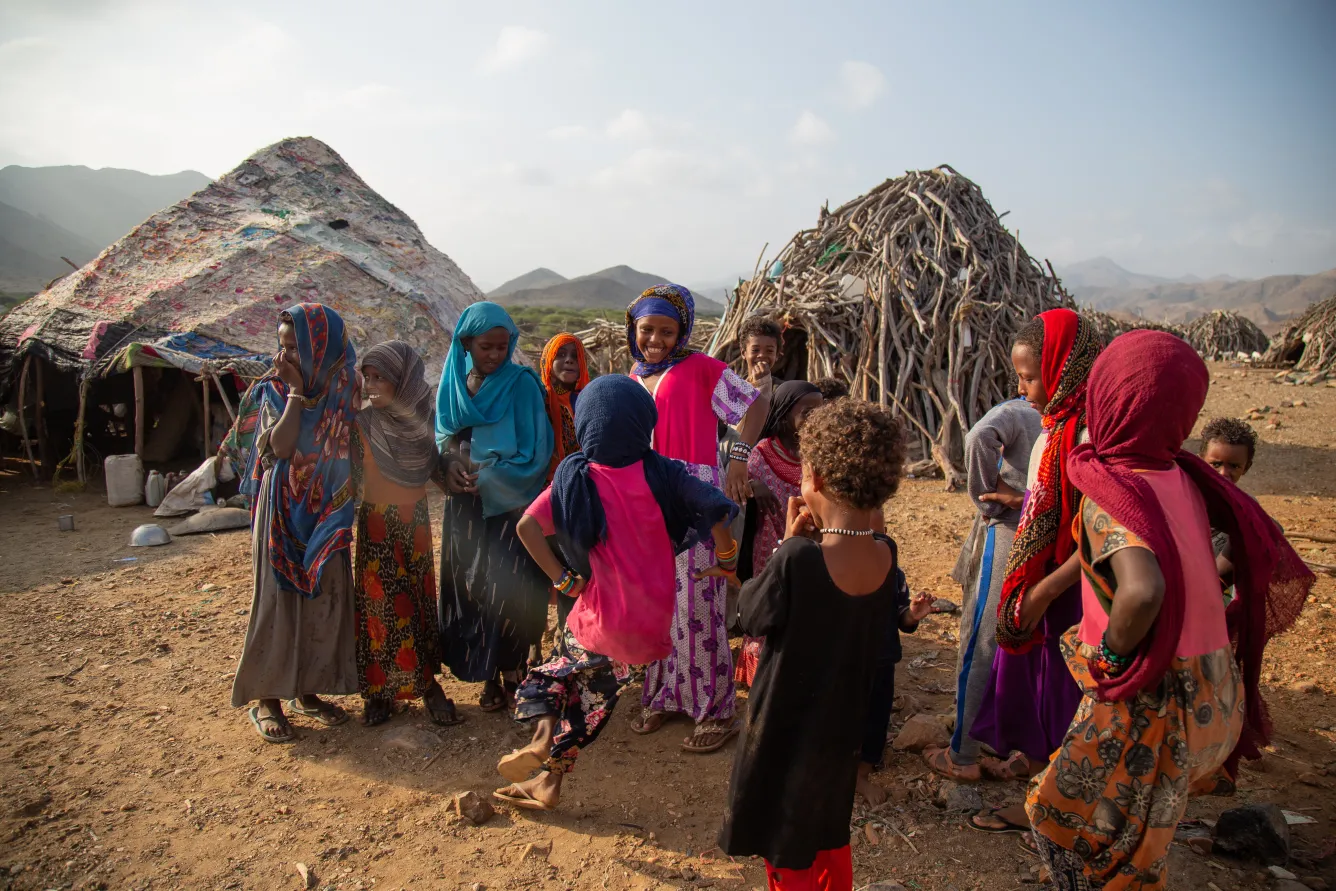
With the burden of fetching water lifted from Madina, she now spends more time playing with her friends and helping her parents with domestic work. “I take advantage of the free time to read and play,” she asserts.
Widad, UNICEF WASH Specialist, highlights that the new water system will serve over 1,500 people and that it will go a long way in improving the health of the community, especially children who are more susceptible to water-borne diseases. “The water systems are also constructed closer to homes, which means they can now get water with a round trip time of at least 30 minutes, reducing the burden and strain of collecting water that is often born by girls and women.”
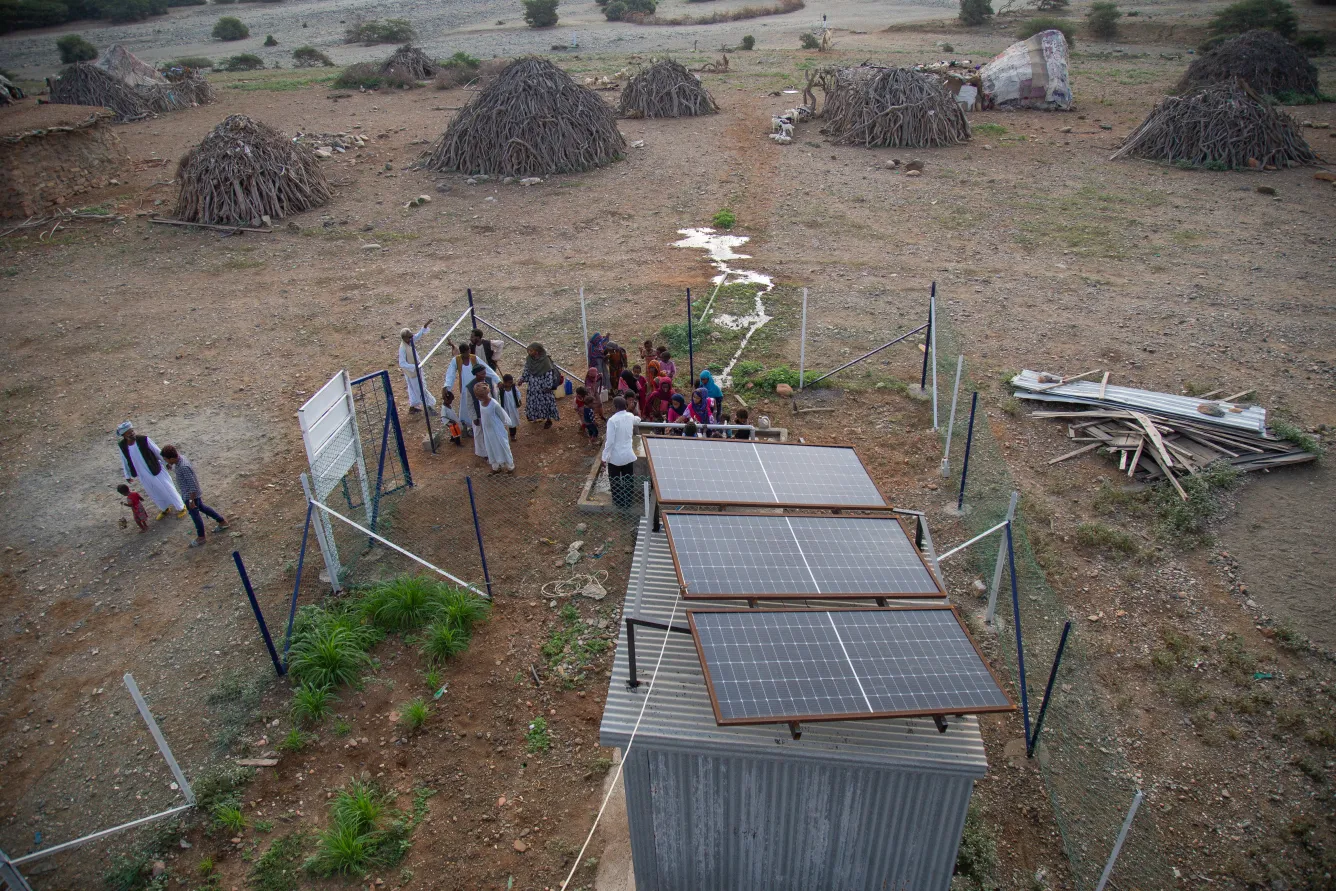
To ensure the sustainability of the water supply and capitalize on the fact that Sudan has an average of ten hours of sunshine per day for most of the year, the water station is powered by solar energy, with a productivity of 5m3 (cubic metres) per hour.
“We are using solar energy to power the system. It is efficient and environmentally friendly,” confirms Hasheem, WASH Officer at LM International.
Operation, management, and maintenance of the water station will be led by the communities themselves, to ensure sustainability and buy-in.
But the impact of this funding doesn’t end there. Under the same USAID funded project, communities in Agig locality will also benefit from sanitation interventions through the Community-Led Total Sanitation (CLTS) Approach. This initiative will support communities in conducting their own appraisal and analysis of open defecation practices and mobilizing people to identify and find solutions to their sanitation and hygiene needs. Such investments will allow these communities to become more resilient and thrive.
